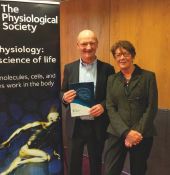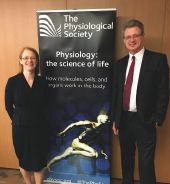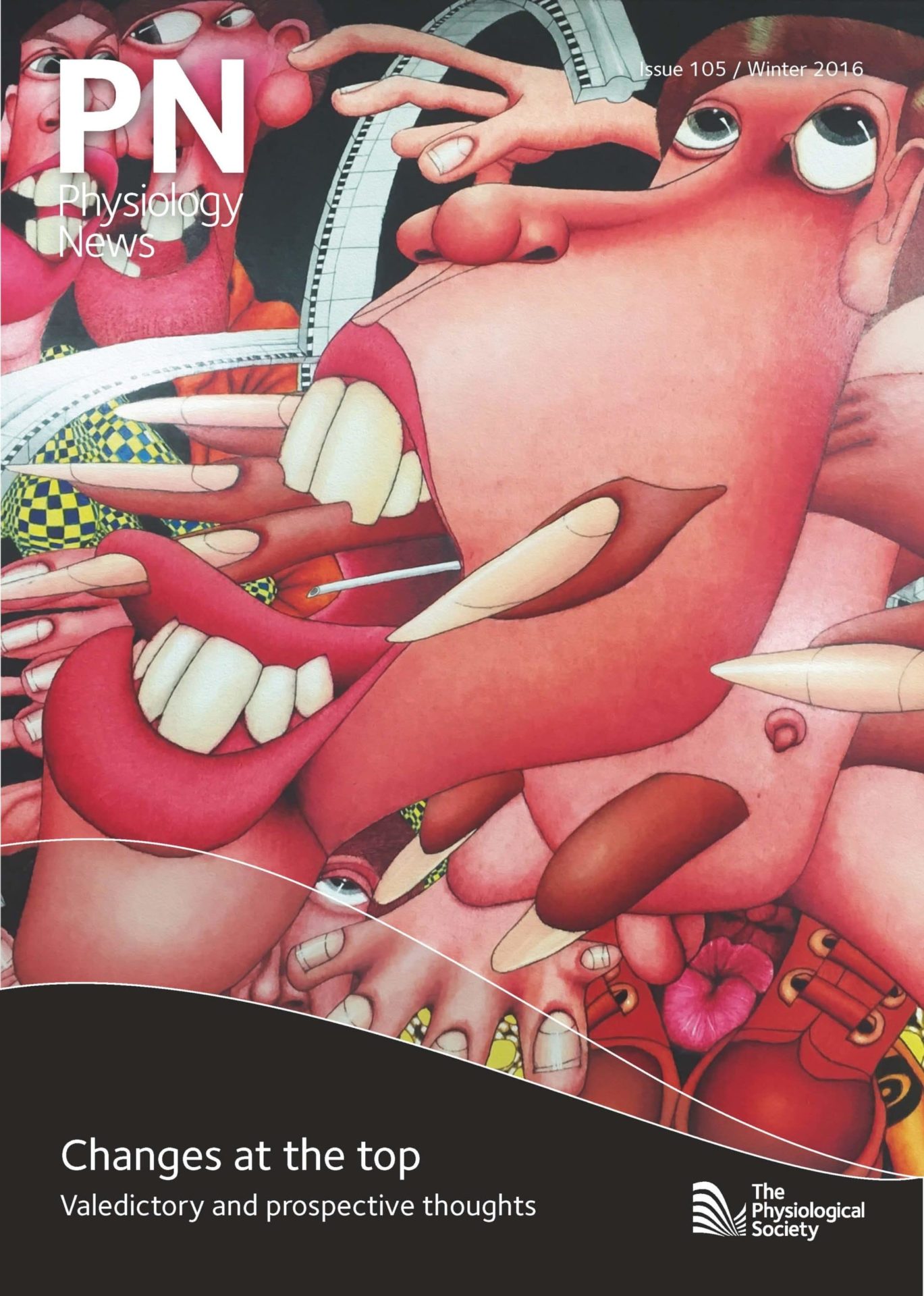
Physiology News Magazine
Policy Focus
News and Views
Policy Focus
News and Views
https://doi.org/10.36866/pn.105.8
Party Conference Fringe Meetings
Building on the success of our 2015 events at the political party conferences, The Society held roundtable discussions entitled TEF vs. REF: Are Teaching and Research now Adversaries? as part of the Labour, Conservative and SNP conference Fringes.
The political situation has changed somewhat since 2015’s conference events. While the Teaching Excellence Framework (TEF) was a rumour in 2015 it is now in a draft Bill going through Parliament, and significant changes are planned in how the research structures of the UK will be arranged. The Society has utilised its experience of working in the area of reward and recognition of Higher Education teaching to be a strong voice feeding in to the creation of the TEF. As part of this, the fringe meetings were an excellent way to bring politicians together with academics and policy experts in order to put forward suggestions on how best to implement this new system.
At our Conservative conference event we were joined by Lord David Willetts, former Science Minister; at Labour by Roberta Blackman-Woods MP, the Chair of the APPG on Universities; and the SNP conference by Shirley-Anne Somerville MSP, the Minister for Higher Education and Science, along with Roger Mullin MP and Carol Monaghan MP, who are on the committee examining the Higher Education and Research Bill. At each event a Trustee of The Society set out our involvement in the area and made our case for changes to the TEF structure.
We were very pleased with the levels of attendance and participation, and a fruitful conversation developed at each meeting.

There were a number of similar strands of argument across each event, and analysing the points made has allowed us to make recommendations to government. We have produced a report summarising the discussions and making recommendations to those drafting the structure of the TEF.
These are:
- Say what you mean The TEF as planned is measuring the whole student environment, not just teaching. Greater clarity is required on the range of expected inputs and the institutional changes required to score highly.
- Include details from the student voice The National Student Survey (NSS) is a very broad tool which makes it hard to distinguish between institutions as almost all universities cluster around 80-90% satisfaction. More direct input – e.g. from Students’ Unions/Course Reps – will address the information requirements of the TEF.
- Compare learning gain Student satisfaction doesn’t correlate to course strength and teaching ability. Utilise the external examining system where peers judge the learning gain across the sector and consider transferable skills as well as subject learning.
- Recognise the good teachers and educational researchers The TEF as currently planned is impersonal. Instead, it should create a structure where demonstrating good teaching and teaching innovation reflects positively and has tangible career rewards.
- Celebrate course diversity Teaching should be linked to local research. Researched-focused academics are pushed to think differently when they are teaching, and students engage more with their subject if they are exposed to real life research. Without this, courses around the country could become homogenised.
- Beware of perception Students must be aware that education is more than a transaction. They should know that good teaching isn’t spoon-feeding, and their education and development comes down to more than simply contact hours.
The Bill is currently going through Parliament and has a number of chances to be amended. It is hoped that with the combination of further scrutiny and sectoral involvement the TEF can emerge looking more considered and effective.

Engagement with devolved administrations
The Society has been increasing its efforts to interact with the devolved administrations in Scotland, Northern Ireland and Wales, by taking part in events at Holyrood, Stormont and the Senedd. We have recently joined the Welsh Cross-Party Group on Science, Technology, Engineering and Mathematics (STEM), as well as the Scottish Cross-Party Group on Science and Technology. We are in the process of joining the Northern Irish All-Party Group on STEM.
These groups bring together politicians and government officials from the devolved areas and are a powerful platform to influence science policy right across the UK.
We have also attended Science in Stormont in Belfast and Science in the Parliament in Edinburgh. In recent years these conferences have become high profile events in the political calendar and involve the party leaders, chief scientific advisors and senior policy makers. By developing our relationship with policymakers in the devolved administrations, we are able to raise the profile of physiology in Scotland, Wales and Northern Ireland, as well as using this network to further influence UK legislation at Westminster.
Interested in these or any other policy related issues? Please contact us via policy@physoc.org
